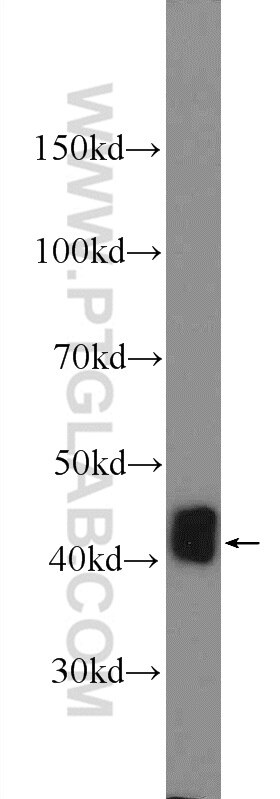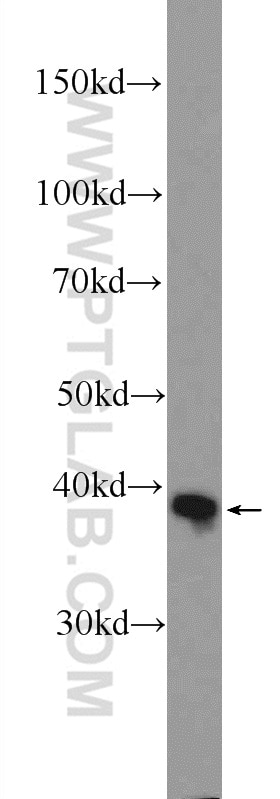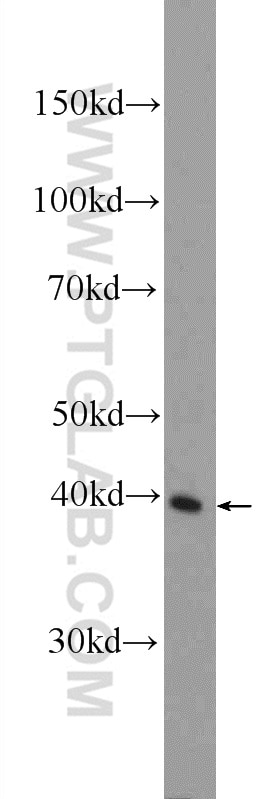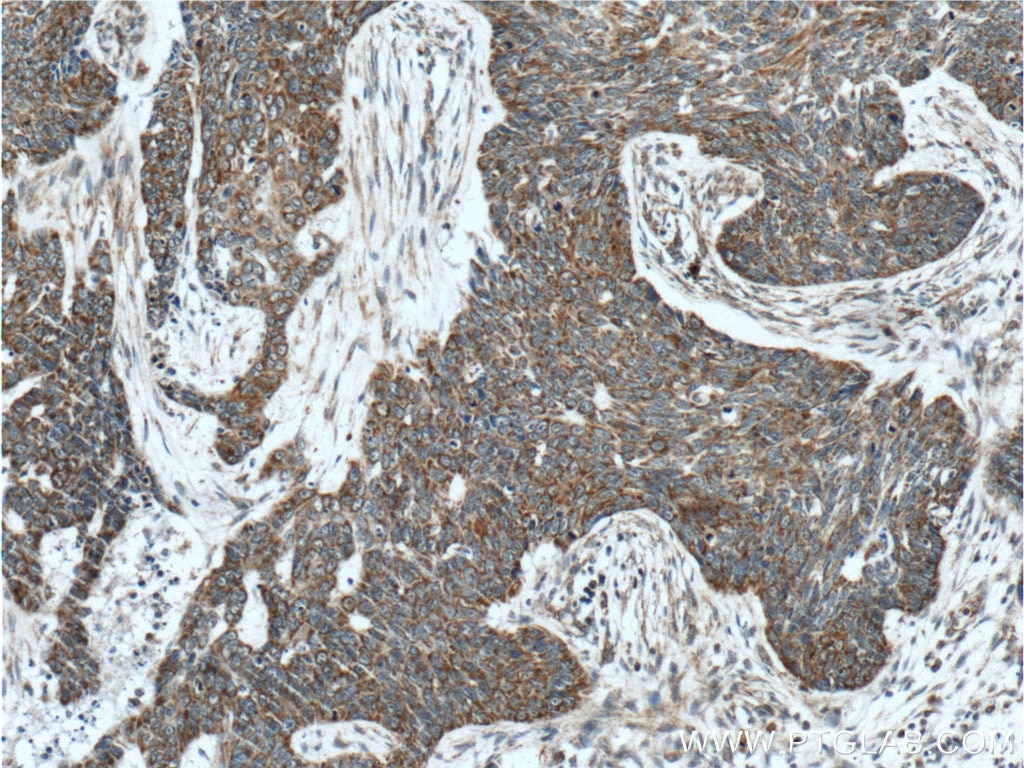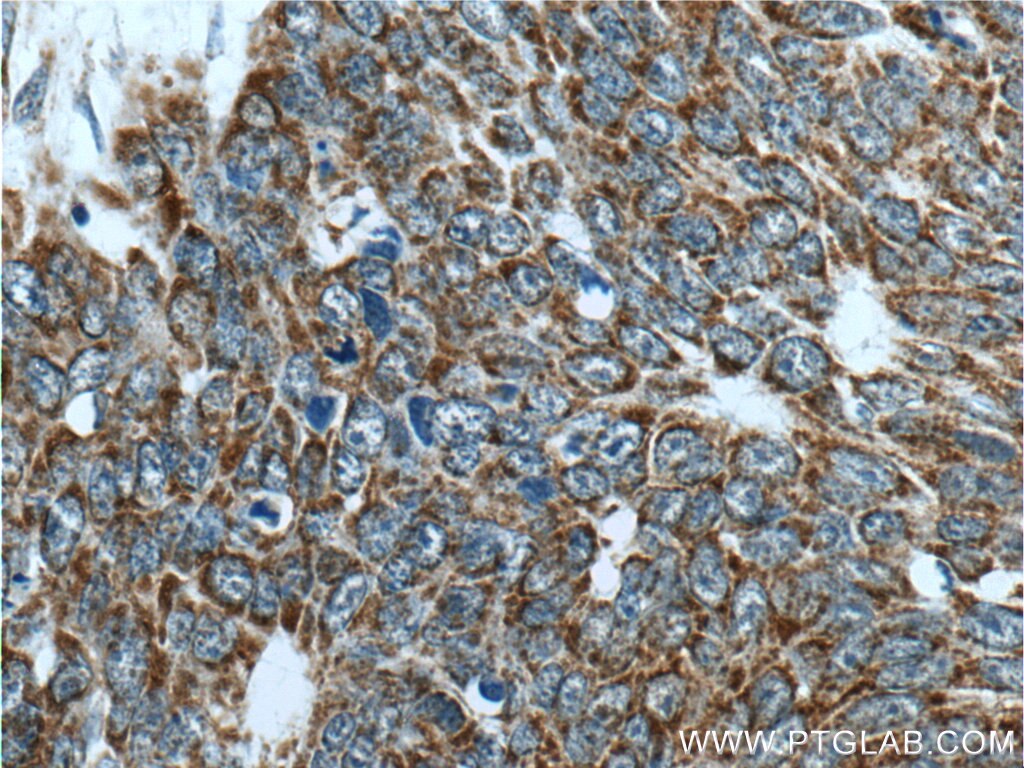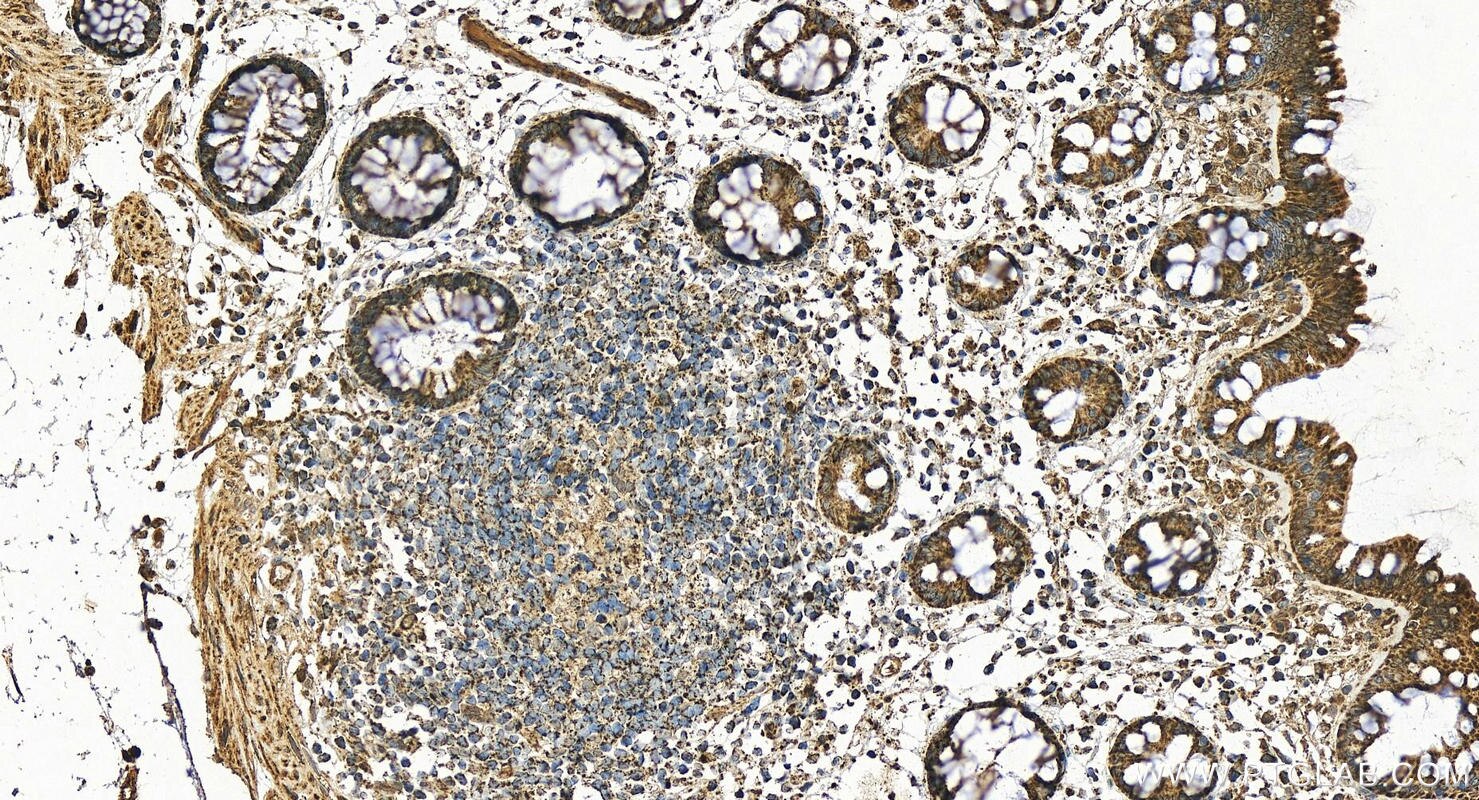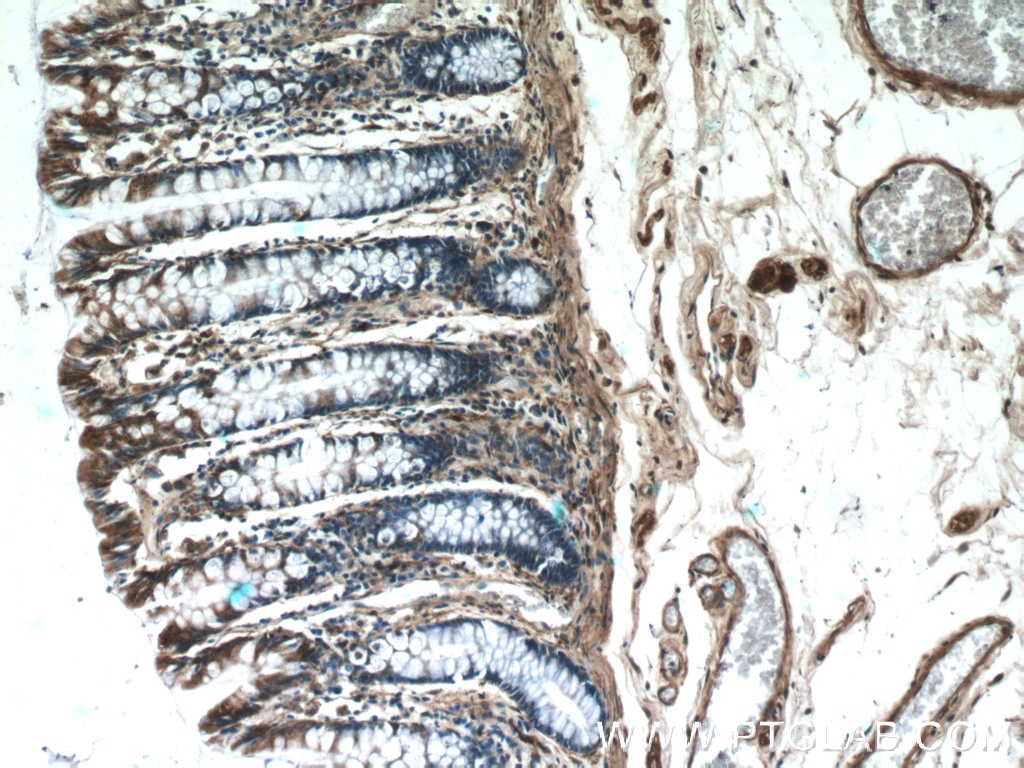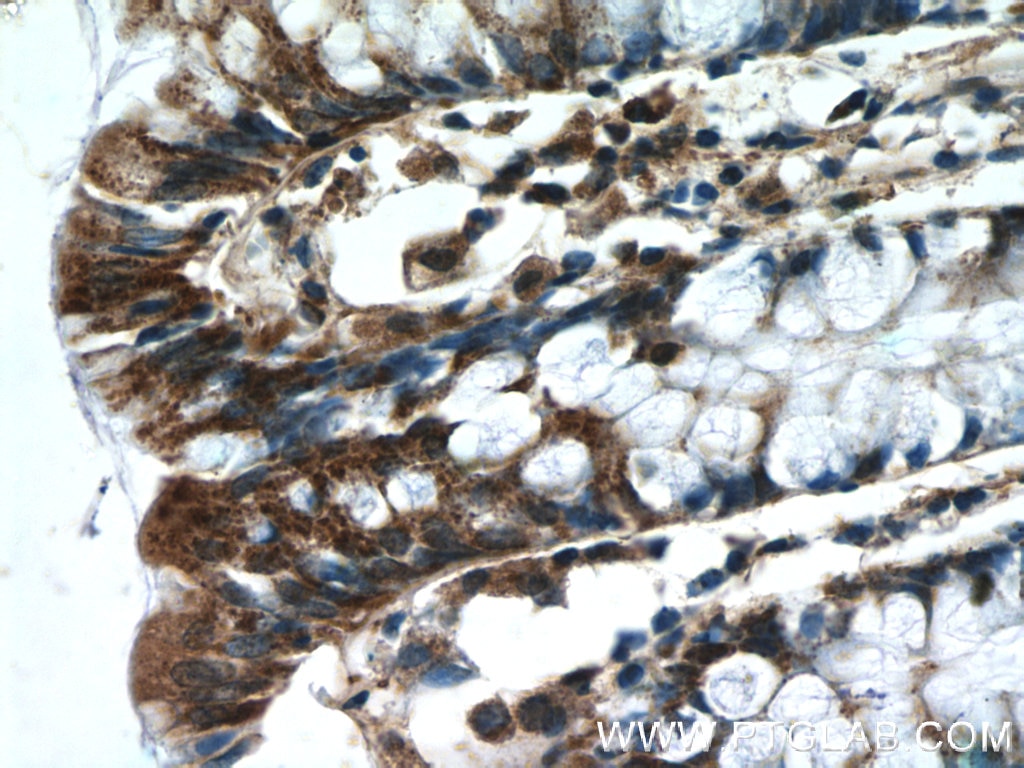Tested Applications
| Positive WB detected in | mouse colon tissue, A375 cells, A431 cells |
| Positive IHC detected in | human colon tissue, human skin cancer tissue Note: suggested antigen retrieval with TE buffer pH 9.0; (*) Alternatively, antigen retrieval may be performed with citrate buffer pH 6.0 |
Recommended dilution
| Application | Dilution |
|---|---|
| Western Blot (WB) | WB : 1:500-1:2000 |
| Immunohistochemistry (IHC) | IHC : 1:50-1:1000 |
| It is recommended that this reagent should be titrated in each testing system to obtain optimal results. | |
| Sample-dependent, Check data in validation data gallery. | |
Published Applications
| WB | See 1 publications below |
Product Information
25848-1-AP targets IDH3G in WB, IHC, ELISA applications and shows reactivity with human, mouse samples.
| Tested Reactivity | human, mouse |
| Cited Reactivity | human |
| Host / Isotype | Rabbit / IgG |
| Class | Polyclonal |
| Type | Antibody |
| Immunogen | IDH3G fusion protein Ag23113 Predict reactive species |
| Full Name | isocitrate dehydrogenase 3 (NAD+) gamma |
| Calculated Molecular Weight | 43 kDa |
| Observed Molecular Weight | 42 kDa |
| GenBank Accession Number | BC000933 |
| Gene Symbol | IDH3G |
| Gene ID (NCBI) | 3421 |
| RRID | AB_2880267 |
| Conjugate | Unconjugated |
| Form | Liquid |
| Purification Method | Antigen affinity purification |
| UNIPROT ID | P51553 |
| Storage Buffer | PBS with 0.02% sodium azide and 50% glycerol pH 7.3. |
| Storage Conditions | Store at -20°C. Stable for one year after shipment. Aliquoting is unnecessary for -20oC storage. 20ul sizes contain 0.1% BSA. |
Protocols
| Product Specific Protocols | |
|---|---|
| WB protocol for IDH3G antibody 25848-1-AP | Download protocol |
| IHC protocol for IDH3G antibody 25848-1-AP | Download protocol |
| Standard Protocols | |
|---|---|
| Click here to view our Standard Protocols |
Publications
| Species | Application | Title |
|---|---|---|
Oncogene Hypoxia-reprogrammed tricarboxylic acid cycle promotes the growth of human breast tumorigenic cells. |
